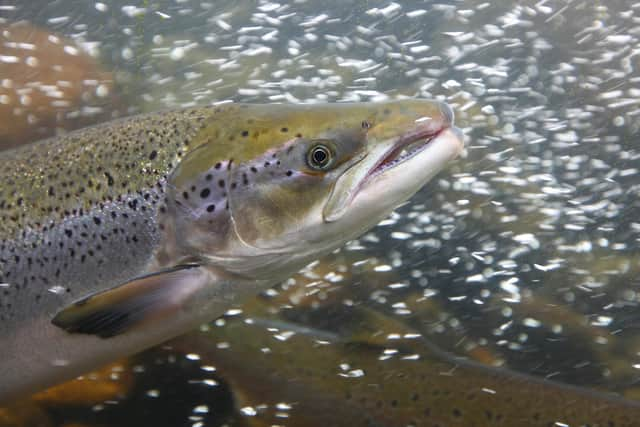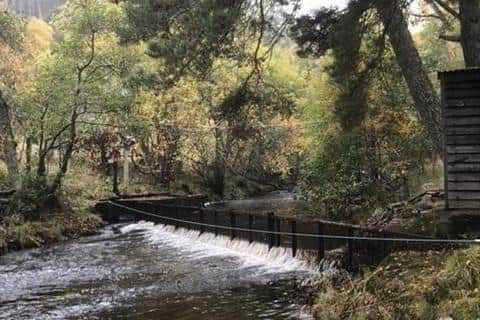King of fish: Royal Deeside river study sparks new hope for saving Scotland’s wild salmon
Atlantic salmon have long been identified as a threatened species, with numbers having crashed over the past few decades.
Scottish rivers are home to around 90 per cent of the UK population of the species, but dramatic declines have prompted fears that the iconic fish could end up on the endangered list in the next 10 years – and even vanish entirely.
Advertisement
Hide AdAdvertisement
Hide AdNow researchers at the University of Aberdeen say insights gained from a long-running monitoring programme based near King Charles III’s Scottish hideaways could help provide solutions that will halt their demise.
It’s hoped results gathered by fish traps installed in 1966 at Girnock Burn on the River Dee – sandwiched between the royal estates of Birkhall and Balmoral and within the Cairngorms National Park – will provide deeper understanding of the complex lifecycle of salmon and clues to why survival rates are falling.
New analysis of the data, which has been summarised and published in the journal Hydrological Processes, has revealed “quantitative changes” in the numbers of adult salmon returning to the river to breed, the places where they are found and their size, growth and age.
Professor Chris Soulsby, of the University of Aberdeen, has been involved in the Girnock study for more than 30 years.


He says the information provides “vital science” that shows how rising temperatures have been affecting salmon and can help guide restoration efforts.
“This 60-year dataset provides a detailed understanding of how salmon populations and their habitat use has changed as the climate has warmed,” he said.
“Unfortunately this shows an alarming decline in the number of salmon returning from the sea, which is consistent with the declining angling catches observed on many Scottish rivers.


"However, from this we can start to build a scientific picture of what management responses to protect fish are likely to be successful.”
Advertisement
Hide AdAdvertisement
Hide AdHe added: “The protection of salmon populations and the habitats they depend on is vital to Scotland’s rural life, economy and employment.
“However, climate change is likely to increase the frequency of winter floods and summer droughts which may also affect salmon populations.
“Continued monitoring at such research sites is essential if Scotland is to have a scientific evidence base to tackle the climate crisis and maintain biodiversity.
“This is a landmark paper in understanding these changes to date and we are delighted University of Aberdeen research is playing a role to provide the science to support this important species.”
Professor Doerthe Tetzlaff, from the IGB, said: “This review paper is the first synthesis of 60 years of research at this internationally important site.
“The extensive studies have allowed an unusually detailed fish population analysis and brought about a much richer understanding of the ecological functioning of the stream.”
Salmon live in both marine and freshwater habitats at different stages of their lives.
Eggs and juveniles require cool, clean, well-oxygenated water and silt-free gravel in rivers to survive.
Advertisement
Hide AdAdvertisement
Hide AdThen the fish must successfully navigate a journey to sea and back again to spawn the next generation.
Several factors have been blamed for their losses, including predators, over-fishing, pollution, man-made barriers in rivers, fish-farming and climate change.
Comments
Want to join the conversation? Please or to comment on this article.